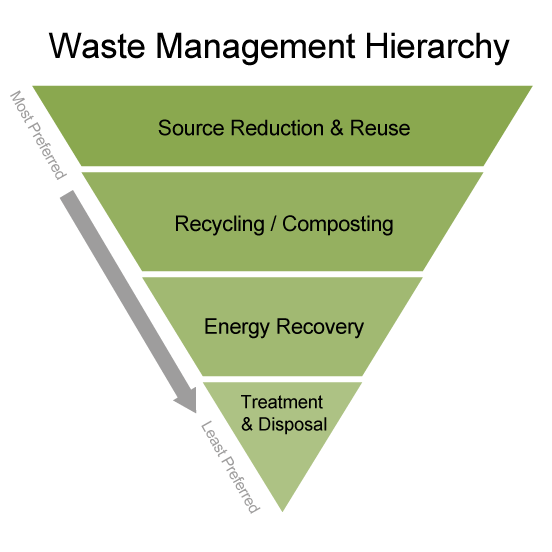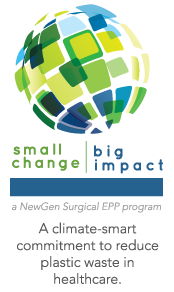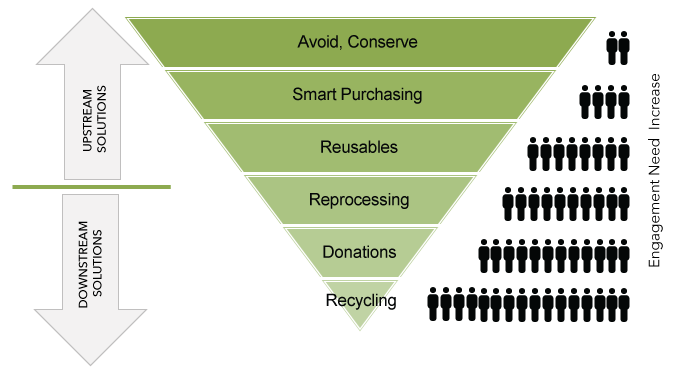Caring. People. Planet. Patients.
As a sustainability professional you’re passionate about protecting the environment, raising awareness, and driving meaningful change within your hospital. We share your commitment. NewGen Surgical was founded because of our growing realization that, as an industry, we need to work together to provide sustainable product solutions. We use a cradle-to-cradle approach to rethink and redesign plastic single-use disposable products that contribute to waste and pollution.
As a leader and champion of sustainability goals in your hospital, your green team includes many roles and departments to drive change. At NewGen Surgical, we’ve met with everyone from safety committees to top-level executives who all share similar environmental stewardship goals. You are at the heart of not only driving this mission, but directly connecting it your hospital’s mission.
Climate change is one of the largest threats affecting public health. Plastic pollution has been identified as a leading contributor to unhealthy environmental impacts on human health. Yet, plastics are fundamental to the industry. Plastic single-use disposables are one of the most wasteful examples of the existing take-make-waste linear economy. Every piece of plastic matters in the pursuit of mitigating plastic waste.
For those reasons we at NewGen Surgical can offer you greener operations to connect your OR with a mission – a program to commit to eliminating plastic waste - with a low conversion cost. And those newly entering the workforce love to work at a healthcare system with a mission they care about, and the employees you already have will appreciate being part of a solution to eliminate plastic waste.
“For improved planetary health to be realized it is important that sectors that are impacted by environmental change, such as health, take a proactive role in understanding their own environmental impact. It is no longer sufficient to simply quantify the problems we face; health-care systems need to be much more effective stewards of the resources placed at their disposal.”
Environmental Impact of our Health Care System on Public Health
By Dr. Ann Blake,PhD, Environmental & Public Health Consulting
An article highlighting the environmental impact of our health care system on public health recently crossed my desk. My work as an environmental and public health consultant focuses on understanding the environmental impact of products and systems across many economic sectors. I took particular notice of this article because of my work with NewGen Surgical which highlights that the intensive use of products and resources in the work of health care can have a direct impact on both their patients and neighboring communities.
The article, Environmental Impacts of the US Health Care System and Effects on Public Health, a research article by Matthew J. Eckelman and Jodi Sherman points out that there are both direct and indirect health impacts of the US Healthcare system. The Healthcare Industry contributes to approximately 18% of the Gross Domestic Product (GDP). What many don’t know is how much this industry and its industrial activities contribute to population-wide negative health impacts. It is estimated that health burdens associated with the healthcare sector emissions, estimated at 8% of the US total, are commensurate with the 44,000 – 98,000 people who die in hospitals each year as a result of preventable errors.
Understanding where the environmental and subsequent health related impacts are coming from is the first step in identifying opportunities for improvement. The article in Plos One looks at not only the direct impact from health care facilities, but also the indirect impact of emissions and negative environmental impacts of the supply chain and provides a context for a focus on environmental stewardship.

Smart Sustainable DesignTM
Performance, economic value and sustainability drive Smart Sustainable Design™. Much like the healthcare industry’s emphasis treating root cause by focusing on wellness and prevention for people, NewGen Surgical is doing the same by examining and redesigning products with more sustainable materials on the front end to achieve a source reduction of plastic used and a reduction of end-of-life plastic pollution in the environment. Our development process begins with a thorough understanding of the clinical performance doctors, nurses and healthcare professionals expect from a single-use disposable device. By rethinking, redesigning and reimagining a surgical product used every day in the operating room, we can reduce or eliminate plastic waste – and still deliver clinical performance at a price that brings value to our customers.
What you buy has impact
The healthcare supply chain usually flows in one direction, from manufacturer to user to waste bin. And the current healthcare waste management process is built to accommodate the plastics-intensive supply chain. Almost everything negotiated on behalf of the hospital to provide quality patient care will end up in a waste stream generating over 12,790 tons of waste, every day, across the nation.

Hospitals are seeking products that align with the values in protecting human health and to address their contribution to pollution. New conversations are taking place with suppliers about more environmentally friendly options, chemicals of concern, supply chain transparency, total cost of ownership, and end-of-life disposal.
Better inputs, better waste management
When you buy plastic, you dispose of plastic. From the US EPA, the most environmentally and cost-effective approach to waste is source reduction and reuse. Source reduction, also referred to as pollution prevention, means any practice that reduces or eliminates waste at the source.
NewGen Surgical approaches source reduction through product redesign and raw material substitution known as upcycling, the concept of upcycling was incorporated to prevent the waste of potentially useful materials by making use of existing ones. This reduction of new raw materials for new products results in a reduction of energy usage, air pollution, water pollution and greenhouse gas emissions.

Your purchasing influence can eliminate thousands of pounds of plastic waste with one of the lowest conversion costs.
Climate Change & NewGen Surgical Impacts – A Perspective
The healthcare supply chain is built on plastics, designed for single use and disposal. Plastics are made of oil, and the use of plastics in healthcare supports fossil fuel dependence, contributing to climate change. To promote public health and curb pollution, the healthcare industry must improve the supply chain, with better material inputs and healthier disposal options. NewGen Surgical is doing just that, with products that are designed for a healthy environment.
By using an agricultural by-product as the primary product ingredient, NewGen Surgical curbs greenhouse gases and organic waste beginning with the selection of raw materials. The use of plant-based materials results in healthier products. It also creates the conditions for better waste management processes. Because plastic does not biodegrade, many plastic medical devices are essentially designed for landfill. Plant-based materials, however, can be recycled or even composted, making possible a circular healthcare supply chain.
The healthcare industry is a major consumer of plastics, and one of the highest generators of waste. Radical resource conservation and a sharp divergence from fossil fuels are needed to protect our patients and communities from climate change.
NewGen Surgical brings these principals to the healthcare supply chain, protecting the climate and public health while delivering quality products for excellent patient care.
Erika Kimball, RN, MBA, Sustainable Healthcare Consulting
The healthcare industry can reduce its GHG impacts most effectively by increasing the energy efficiency of its buildings and transportation as well as educating the public on the increasing impacts of extreme variations in temperature on public health. In addition, however, the products that are used by healthcare in providing its key services each carry embedded energy and carbon in their production, use and disposal. Switching to more sustainable products across healthcare purchasing can also reduce a hospital’s climate impact for a better future for its patients, employees, and surrounding community. Each NewGen Surgical product replaces plastic with an equivalent weight of a biodegradable material sourced from an agricultural waste.
Practice Greenhealth describes the impact of waste as follows:
Waste disposal produces greenhouse gas emissions in several ways. Transporting waste from facilities to disposal site requires energy and produces greenhouse gas emissions. Waste disposal practices themselves also produce greenhouse emissions, along with other environmental pollutants. Anaerobic decomposition of organic matter in landfills produces CH4 (although landfills are also carbon sinks), and waste incineration emits N2O and CO2.
A comprehensive approach to facility waste management includes diversion of construction and demolition debris, material recycling, composting of food waste, reuse, and donation reduces these emissions. It also lowers facilities’ demand for virgin resources, thus mitigating emissions produced in resource extraction, manufacturing, and product transportation.
Practice Greenhealth suggests several strategies for waste reduction that are relevant to NewGen Surgical, namely 1) prevent waste and 2) buy recycled products.
NewGen Surgical can help healthcare facilities optimize these strategies to reduce their climate impact.
Dr. Ann Blake, PhD, Environmental & Public Health Consulting
Greener Operations with NewGen Surgical
NewGen Surgical products are designed to replace existing plastic, single-use, disposal products without interrupting the workflow of the hospital, surgical procedures or disposal. In fact, it’s an easy way to accomplish measurable and meaningful impact. Your purchasing power and influence can eliminate thousands of pounds of plastic waste with one of the lowest conversion costs. The investment of time and training are minimal when a similar single-use disposable surgical product is switched to one made with sustainable material. Take action at the top level of the supply chain and use your EPP policy to replace plastic single-use products with sustainably designed alternatives to help mitigate healthcare pollution.
Products that make a difference
How many needle counters and skin staplers are part of your surgical department’s inventory? Are they included in your surgical kits? NewGen Surgical products offer similar clinical performance while delivering a measurable reduction in plastic waste.

 Small Change, Big Impact
Small Change, Big Impact
When you buy plastic, you dispose of plastic. Join our Small Change, Big Impact EPP™ program and make a measurable commitment to reduce your plastic waste. This program tracks your use of NewGen Surgical’s sustainably designed, single-use medical devices and surgical products and provides healthcare leaders a platform to measure the reduction of plastic waste generated from their hospital or system. Every piece of plastic matters. Working together we can make a measurable impact.
Ordering Information
To learn more or order, contact sales at NewGen Surgical at 1.855.295.4500 or email us at: sales@newgensurgical.com. Bulk, non-sterile available for surgical procedure packs though authorized distributors.
